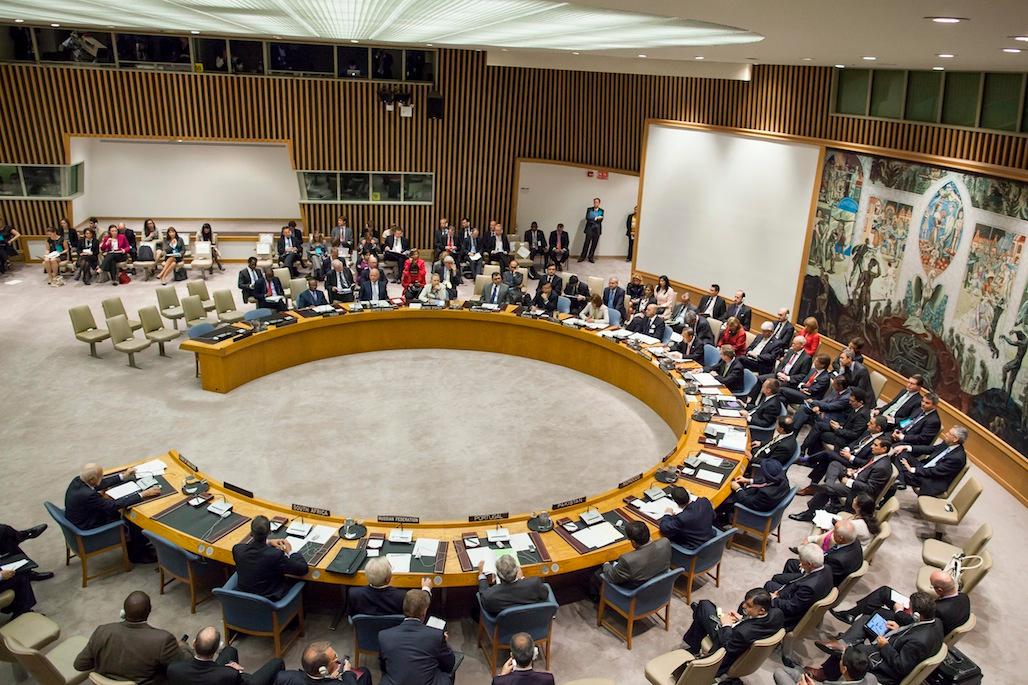UN Security Council talks Syria, Israel, blasphemy law during high-level meeting on security in the Middle East
Secretary General Ban Ki-moon speaks during a United Nations Security Council meeting on peace and security in Middle East on Sept. 26, 2012 in New York City.
At a high-level meeting of the United Nations Security Council on Wednesday, leaders discussed the major Middle East security challenges that the council faces, with the stalemate in the Israeli-Palestinian peace process and the crisis in Syria chief among them.
German Foreign Minister Guido Westerwelle opened the session, which began at about 3 p.m. EST and was broadcast live online. Germany currently holds the presidency of the Security Council.
Noting the "dramatic change across the near and Middle East" since the Arab Spring, Westerwelle said that outcomes of political transitions in the region have varied widely, saying "it would be better to speak of Arab seasons."
“We meet at a time of historic … change in the Middle East and North Africa,” UN Secretary-General Ban Ki-Moon told the meeting. Ban added that it is also a time of widespread apprehension and violence.
Ban emphasized the need to push forward the peace process in Israel, as well as the urgent need for an end to the violence in Syria.
“There is no military solution to this crisis” he said of Syria — rather, a political solution is needed.
Nabil Elaraby, the president of the League of Arab States, which has worked jointly with the UN to address the civil war in Syria, voiced the oft-cited opinion that the Security Council's failure to implement resolutions has stalled not only a solution in Syria but peace processes elsewhere.
What's more, Elaraby said those failed resolutions have contributed to instability.
"Resolutions have been adopted for more than six decades on Palestine," he said.
In Syria, "the Security Council failed to achieve any of [their] objectives because of disagreement among the P5," he said, referring to the five permanent members of the council — China, the United States, Russia, France and the United Kingdom. China and Russia have repeatedly vetoed resolutions that the council has put forward on Syria.
"The League of Arab States … believes that a fundamental pillar for international peace and security is effectiveness and credibility of the UN Security Council."
French Foreign Minister Laurent Fabius said he found it "shocking" that "that our council has been unable to act up until now."
Citing the recent protests across the Middle East in response to a video denigrating Islam, Elaraby also brought up the idea of laws against blasphemy.
"The League of Arab States calls for the development of an international legal framework which is binding … in order to confront insulting religions and ensuring that religious faith and its symbols are respected," Elaraby said.
As the Associated Press wrote, those comments "put him squarely at odds with the United States and many of its western allies, which are resolutely opposed to restrictions on freedom of expression."
According to the AP, US Secretary of State Hillary Clinton did not address Elaraby's comments specifically when she addressed the council.
The story you just read is accessible and free to all because thousands of listeners and readers contribute to our nonprofit newsroom. We go deep to bring you the human-centered international reporting that you know you can trust. To do this work and to do it well, we rely on the support of our listeners. If you appreciated our coverage this year, if there was a story that made you pause or a song that moved you, would you consider making a gift to sustain our work through 2024 and beyond?
